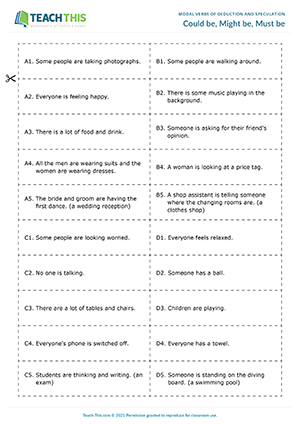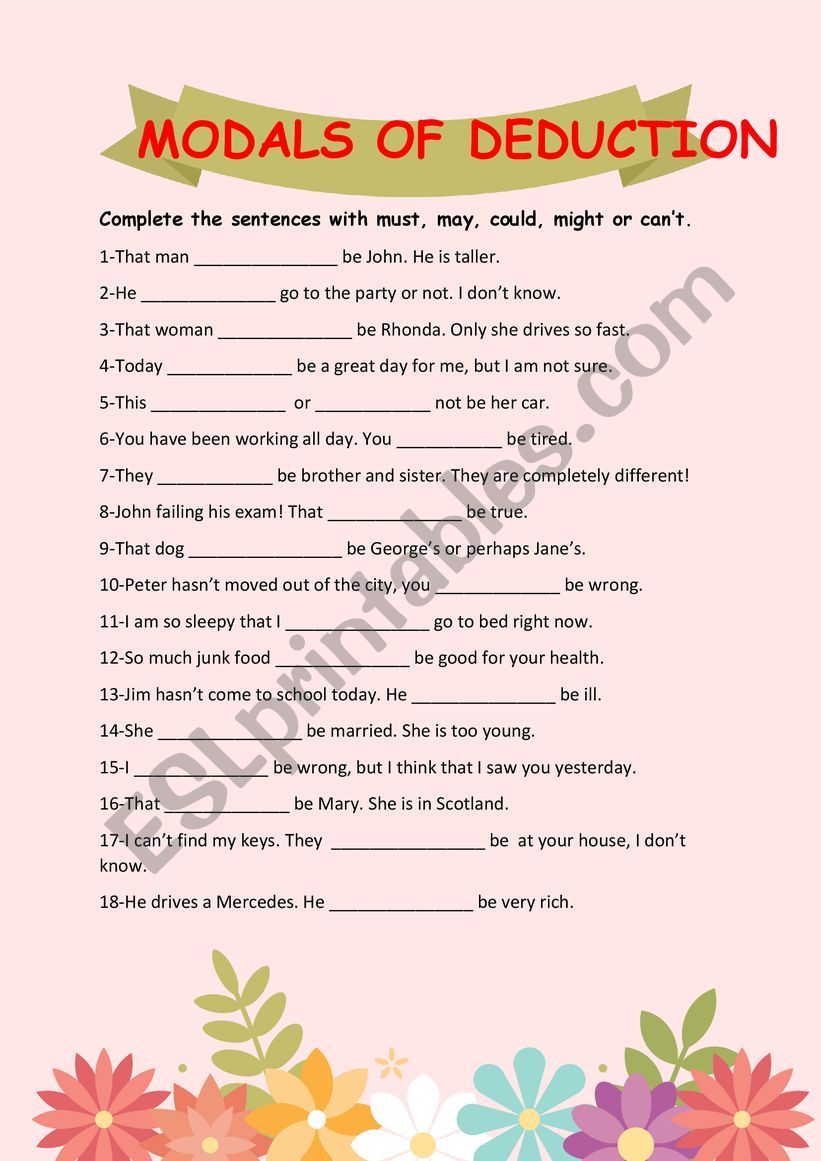

Might is used for speculative situations that didn’t actually happen. May is used for situations that could be factual or could be Is a 50% chance that the flight gets delayed due to weather) The airline told us that the flight might be delayed due to weather.(I am not exactly sure why they aren’tīe able to help us with the problem. You use the words “may (not)” or “might (not)” if you are

To pass the test it is required that she study) Study for the test if she wants to do well. I thought I saw Adnan this morning but it couldn't have been him – he's in Greece this week.ĭo this exercise to test your grammar again.You use the word “must” when you are 100% (or nearly) positive that something is true. We use can't have and couldn't have + past participle when we think it's not possible that something happened. Could have is also possible in this context but less common. Police think the suspect may have left the country using a fake passport. I think I might have left the air conditioning on. We can use might have or may have + past participle when we think it's possible that something happened. The door was locked and nothing was broken. Who told the newspapers about the prime minister's plans? It must have been someone close to him. We use must have + past participle when we feel sure about what happened. This page focuses on making deductions about the past. The modal verb we choose shows how certain we are about the possibility. We can use modal verbs for deduction – guessing if something is true using the available information.

Modals – deduction (past): Grammar test 1 How did she fail that exam? She can't have studied very much. We don't know for sure that Alex broke the coffee table.

Look at these examples to see how must, might, may, could, can't and couldn't are used in the past.Īn earthquake? That must have been terrifying!


 0 kommentar(er)
0 kommentar(er)
